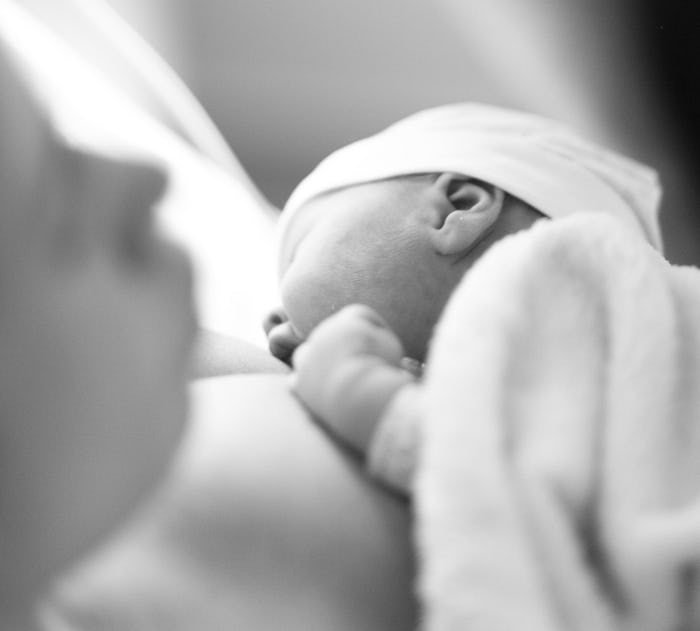Life

A Woman Just Had A Baby Using An Ovary Frozen When She Was A Child, Thanks To Science
Science has come a long way in terms of helping people have babies. The use of in vitro fertilization has made it possible for people to have children who previously might not have been able to. Many women are familiar with the concept of freezing their eggs, but now they may have even more options. In London, a woman had a baby using an ovary frozen when she was a child — the first such case of its kind.
IVF is common enough these days that most people are familiar with things like freezing eggs and sperm donation. As a woman ages, the viability of her eggs lessens: she doesn't just have fewer of them, but the quality decreases over time, too. That's why many women opt to "freeze" their eggs to preserve them for later use. Sometimes women make the decision to freeze their eggs because they have a disease or condition that affects their ovaries, which could make them infertile in the future. If a woman has a reserve of frozen eggs, they can be inseminated with sperm (either from a partner or donor), fertilized outside the body, then implanted into the woman's uterus or into a surrogate.
Moaza Al Matrooshi, 24, of Dubai, has a rare blood disorder called beta thalassaemia, according to the BBC. Diagnosed in childhood, she had to undergo chemotherapy, which is known to damage reproductive organs. Chemotherapy-induced ovarian failure can be a side effect of treatment, and although Moaza hadn't started puberty yet, doctors removed her right ovary and preserved the tissue in hopes that it might be usable to her later in life, should she want to become a parent.
So that's exactly what Moaza did: when her ovary was removed, tissue samples were preserved using the cryogenic freezing method typically used to "freeze" eggs, and last year she went to Denmark so surgeons could attempt to transplant the ovarian tissue back into her body. They were able to essentially graft the preserved ovarian tissue onto her left ovary, as well as the side of her uterus, according to The Washington Post.
As a result of having lost one ovary, Moaza had started to go through menopause. But when the tissue was placed back in her body, it took hold and successfully began to produce hormones, which caused her to start ovulating again. She and her husband began IVF treatment and they were able to conceive. Moaza told the BBC she "always believed that I would be a mum and that I would have a baby. I didn't stop hoping and now I have this baby -—it is a perfect feeling."
On Tuesday, she gave birth to a healthy child. And if that wasn't amazing enough, doctors have determined that she now has normal ovarian function, meaning menopause was completely reversed. While there have been other cases of such restored ovarian function, and even conception, Moaza is believed to be the first woman to achieve it with an ovary frozen before the onset of puberty.
Since a woman is born with all the eggs she'll ever have, if the eggs need to be frozen, it certainly makes sense to do so when there are a lot of healthy eggs available. And when it comes to grafting tissue from reproductive organs, scientists now better understand what's possible for women who may have their fertility compromised due to illness or injury. In a world that seems bent on taking reproductive choice away from women, it's encouraging to see more options being discovered that can empower women in regards to their health and lives.